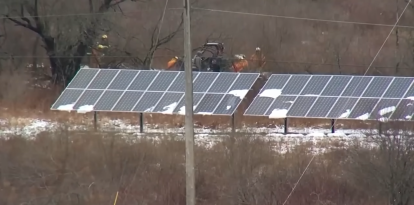Darien: U.S. and Panama sign agreement to repatriate immigrants
So far this year more than 200,000 people, mostly Venezuelans, have passed through the notoriously dangerous jungle in an attempt to reach U.S. territory.

Migrants in the Darien
The White House reported that the United States and Panama have signed an agreement to repatriate irregular migrants transiting north through the Darien jungle.
"The United States will support Panama's efforts to initiate the rapid, safe and humane repatriation of migrants who have no legal basis to remain in Panama. By returning these individuals to their country of origin, we will help deter irregular migration in the region and at our southern border," the Democratic Administration said in a statement.
The announcement coincides with the swearing-in of José Raúl Mulino as Panama's new president. The president promised - during his inauguration speech - that his country will not serve as a transit for immigrants traveling through the Darien jungle.
As soon as he won the elections, he emphasized that he would have as a priority his migratory policy. "We will initiate with international help a repatriation process with full respect for the human rights of all the people who are there," said Mulino during a speech at the ceremony in which the National Board of Canvassers formally proclaimed him president.
In 2023, half a million people crossed this dangerous jungle border with Colombia. AFP detailed that so far this year, more than 200,000 people, "the vast majority Venezuelans, have passed through the inhospitable Darien Gap, where criminal gangs operate kidnapping, robbing, and raping migrants. Many die in this jungle."
Meanwhile, organizations such as Human Rights Watch (HRW) have warned that Colombia and Panama are failing to effectively protect and assist the hundreds of thousands of migrants and asylum seekers transiting the Darien jungle.
The organization identified shortcomings in the efforts of these Latin American countries to protect and assist people - including those most at risk, such as unaccompanied children - as well as to investigate abuses against them.
RECOMMENDATION





















